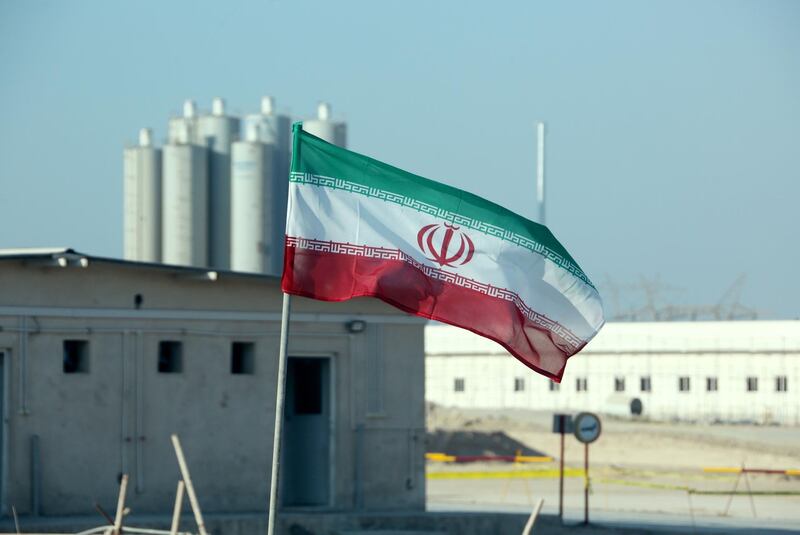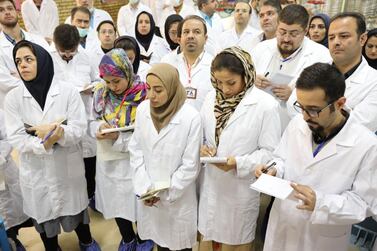The UN's nuclear watchdog has detected uranium particles at an undeclared site in Iran, it said in its latest report on the country's nuclear programme on Monday.
The International Atomic Energy Agency said the particles were from uranium that had undergone initial processing, but not been enriched.
The IAEA said it was "essential for Iran to continue interactions with the agency to resolve the matter as soon as possible".
While it did not name the site, diplomatic sources have said the agency has been questioning Iran about a plant where Israel claimed there had been secret atomic work.
Sources say the agency took samples from the site in the Turquzabad district of Tehran in spring and that Iran was slow to provide answers about the test results.
Monday's report also confirms that Iran has increased uranium enrichment, with its stockpile now reaching the equivalent of 551 kilograms, as opposed to the 300-kilogram limit in Iran's 2015 deal with world powers.
A diplomat in Vienna said the rate of production of enriched uranium had increased to more than 100 kilogrammes a month and could increase further.
The report confirms that Iran is now enriching uranium at its Fordow facility, the operation of which is its latest breach of the deal.
It makes no mention of an incident involving one of the agency's inspectors two weeks ago, which led to Iran cancelling her accreditation.
Iran said the inspector set off a security check at the entrance gate to the Natanz enrichment plant.
The agency has disputed Tehran's account of the incident and said last week that the inspector was briefly prevented from leaving the country, and that her treatment was "not acceptable".
But a diplomat said the incident was an isolated case and there was no indication that the agency's access for inspections has been restricted further.
The nuclear accord has been in increasing danger of falling apart since the US withdrew from it last year and reimposed sanctions on Tehran.
Since May, Iran has progressively breached limits while insisting the steps are reversible if the other parties to the deal provide relief to ease the effect of US sanctions.
But despite Iran saying last week that it was now enriching uranium to five per cent, the report said the highest level observed was 4.5 per cent, still higher than the 3.67 per cent in the 2015 deal.
On Monday, the foreign ministers of the remaining European parties to the deal – Germany, France and Britain – were to meet in Paris to discuss how to respond to Iran's latest moves.
The German Foreign Minister, Heiko Maas, suggested before the meeting that a dispute resolution clause in the deal could be used to allow renewed UN sanctions.
A European source said before Monday's meeting that "the window of opportunity for de-escalation is narrowing very seriously", and that the decision to restart enrichment at Fordow was "serious for several reasons".
The source said that the time needed for Iran to gain fissile material had been kept to at least 12 months while the Iranians were abiding by the terms of the deal.
They said despite Iran's moves the time was not decreasing significantly.
Iran has always insisted that its nuclear programme is exclusively peaceful.







